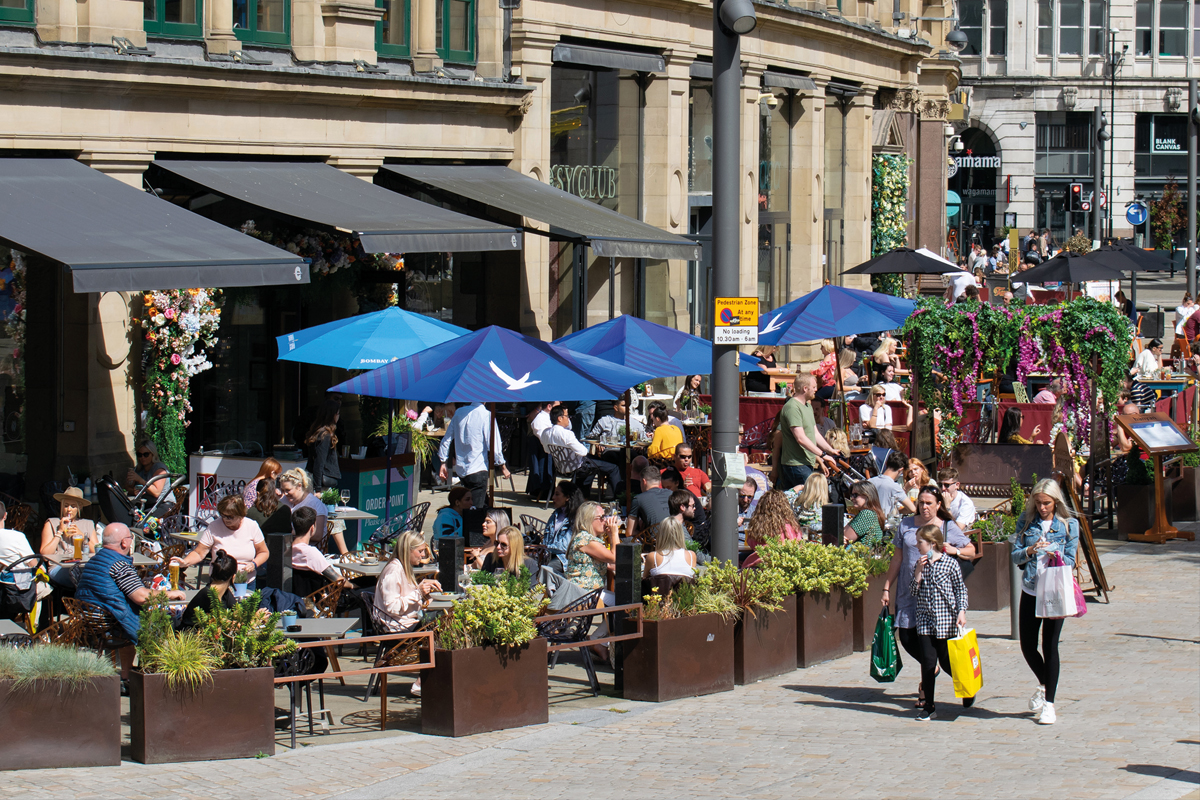Ensuring outdoor areas are properly managed is crucial

By Jack Cummins
THE licensing of outdoor areas has assumed a new importance during the pandemic… but unless these spaces are properly managed there’s a real risk that tensions with neighbours will lead to a loss of the permission.
For a business largely dependant on al fresco drinking that could be a total disaster.
The primary source of problems usually lies with bad neighbour relations.
Over the past few months I’ve observed a large number of licensing board applications seeking to make pavement cafes and beer gardens permanent after the extensive use of occasional licences. This is accomplished by means of a major variation application.
In a number of these cases there has been a storm of protest from neighbouring residents and other businesses. The usual hotspots are customers’ antisocial behaviour, significant noise disruption, trading at over the authorised capacity, litter problems and using an area after its terminal hour (usually, but not always, 10pm).
There are a number of steps that will help to keep you clear of trouble.
For a start, it’s vital to stick to the licence conditions.
In Glasgow, for example, where an outdoor licensed area is situated on a public footway it may only be used by customers seated at tables: so, no vertical drinking.
The relevant section of the footpath also has to be marked out with a removable barrier so that it conforms to the approved plan. The capacity of the space – no matter where it’s located – will be capped at a certain number. Most licensing boards ban amplified sound in external areas.
If problems are developing and you’re contacted by disaffected neighbours, engagement at this stage is absolutely vital. Failure to nip complaints in the bud is likely to see objections pouring in to the licensing board, which will be wholly unimpressed if it discovers you’ve turned a deaf ear.
Of course, there’s always a risk that a neighbour simply cannot be placated.
For some, living above a café with a pavement area will never be tolerable, even if you are sticking to the conditions and exercising proper management.
But in the majority of cases relations can be improved by stepping up supervision procedures and making concessions.
Limiting the use of the area may not be attractive but it’s a whole lot better than losing it altogether.
So, depending on what’s bothering the locals, you might want to trim the capacity or offer an earlier finishing time.
There may be an extreme case in which the solution is to make the supply of alcohol conditional on a food order.
Then, as in all cases where there’s ongoing friction with adjoining occupiers, it’s a good idea to provide them with a mobile number to call if they’re experiencing disruption.
In my experience, licensing boards have largely taken a business-friendly approach to outside areas and in most instances will want to see them thrive.
They’re also apt to look for a holistic solution when dealing with a pile of objections.
Constructive dialogue with local residents always plays well.
In fact, it sometimes exposes unreasonable attitudes on the part of objectors.
On the other hand, if a board learns that a business continually snubs complainers, that will play very badly indeed.
Lastly, let’s not forget the role of the local licensing standards officers.
In terms of the Licensing (Scotland) Act 2005, one of an officer’s functions is to “provide mediation services for the purpose of avoiding or resolving disputes or disagreements between (i) the holders of licences… and (ii) any other persons”.
These are “disputes or disagreements” relating to (broadly speaking) compliance matters. I suspect that avenue is very often overlooked and it’s really worth using.
A licensing board will be pleased to learn that you’ve been taking advantage of assistance from one of its officials – the same official you’ll want ‘on side’ when objections are being considered.



















